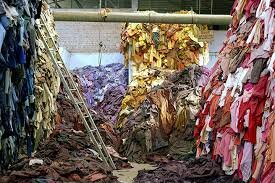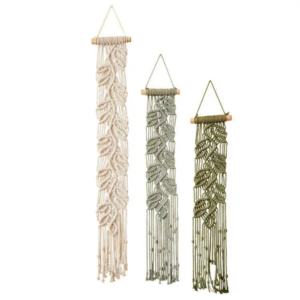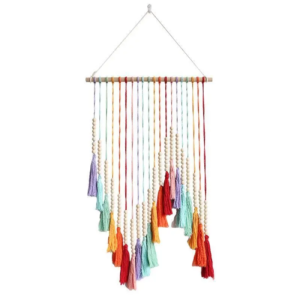Fast Fashion Needs to Slow Down
The term “Fast Fashion” is most likely popping up on your social media accounts every day. What exactly does this term mean? Fast Fashion is a term that describes mass-produced, cheap items that follow quick trends and often die out after a season. Think of big box stores showcasing hundreds of identical items that will usually last their owners a few uses before they rip or get worn out, ultimately leading consumers right back to the stores to purchase more items. The textile industry produces about 1.2 billion tons of CO2 pollution a year. That’s monumental in terms of the global climate change happening right now. So why does this matter and what can we REALISTICALLY do as consumers to help combat these toxic emissions?

Global climate change what?
Most often, when we hear the term Global Climate Change we scroll past the news article or skip the news video because it is OVERWHELMING. Let’s break it down. This big scary term is used for something that used to be called global warming. Essentially, pollution, waste, and greenhouse gasses, including carbon dioxide, cause climate change. In some places the climate is rising by 2º in others it’s getting colder.
What exactly does this mean?
As our climate changes, some obvious things are happening that you may already be aware of. For example, the ice caps in arctic areas as well as on most mountaintops are melting. This will result in not only limited environmental space for arctic animals but also brings a rise in our sea levels and temperature. As the temperature heats up, the ice caps melt not only adding more water to the sea level, while contributing to twice the amount of damage. Ice caps are actually used as the Earth’s internal cooling system. Without them our temperature is projected to rise more than 2 degrees Celsius a year. With warming temperatures, more turbulent weather such as hurricanes, tornadoes, and blizzards takes place. This also brings on more wildfires because the heat dries shrubs and tinder and added heat and sunlight can create large and expansive fires. Another issue brought on by rapid environmental change is that most species aren’t equipped to stand new climates and building pollution. One animal that is declining is bees which are thought to pollinate about ⅓ of our food.
All of these changes impact us and our daily living. We’re seeing these effects around the globe, with Paris having their 3rd hottest summer in a row (imagine without AC). Despite humans not being able to withstand the heatwaves that are coming; in most European, Latin, African, and Asian countries only about 8% of households have Air Conditioning. Have you noticed any environmental changes where you live?
Stay tuned as we keep updating you on how you can play a role in fighting fast fashion and protecting our planet.









